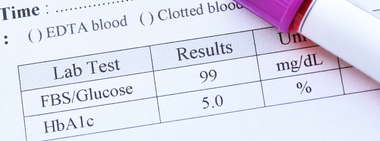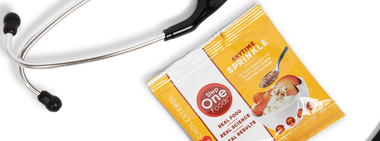Step One survey shows doctors don’t talk about diet

The results are in from our first-ever survey about the healthcare you receive, and, not surprisingly, it shows you are just as frustrated with some aspects of the medical establishment as I am!
Here are the details:
First, what you want: 97 percent of you told us that diet is an important component of health. Not surprisingly, then, you think diet is a subject that your doctor should discuss with you. In fact, 92.5 percent of you said you would follow your doctor’s advice if he or she suggested a dietary change to improve your health. Great! This is what every medical professional wants to hear.
But, what you want rarely happens. Only 12.5 percent of your doctors even bothered to take a detailed dietary history from you. And, more alarmingly, only 10 percent of your cardiologists have done this!
If there’s one silver lining, it’s that things used to be even worse. When I went to medical school, there were no nutrition classes. Out of 14 years of concentrated medical instruction, zero hours were focused on diet. Now, most medical schools require some training in nutrition – all 25 hours of it. And our survey did show that some doctors talk about diet occasionally. It’s just not nearly enough.
Taking a dietary history may sound intimidating to a provider, but it actually just means asking patients what they usually eat for breakfast, lunch, dinner and snacks, and what beverages they typically consume. It means listening for patterns and engaging in conversation. When I do this, I often find places where people can make small sustainable dietary changes that could add up to big health effects over time. Most of us eat 3 or more times a day, every day. So the cumulative effects of even a tiny dietary change can be profound. But because those conversations don’t happen for most patients, instead of leaving with dietary advice, patients leave with only a prescription for medications. That’s not necessarily all bad – after all medications can impact health in positive ways – but when the dietary foundation for health is missing, even the medication’s full impact is blunted and the best possible health outcomes will not be achieved.
Plus, relying solely on medications to solve all our health issues drives up cost, may come with unwanted side effects and can lead to a lower quality of life for the patient.
We always have to remember that heart disease is not caused by a lack of medications! Heart disease is caused by a lack of the right foods. And by treating the root cause, we can prevent more cases of the disease that kills more Americans than any other ailment.
Eighty percent of heart disease need not exists. That’s not a wish. It’s a fact. Not leveraging food as part of the solution is a huge missed opportunity that the medical establishment needs to recognize as a giant gap in care. And then work to eliminate that gap, and soon.
Now we have evidence that you agree with me. Here is some guidance on how to talk to your doctor about diet so that you can be more proactive in your own care. Because, in this case, just because it wasn’t discussed at your visit doesn’t mean it isn’t vitally important.

Tested & Proven Results.
- Cardiologist formulated
- Supported by over 500 publications
- Clinically-proven, in a double-blind randomized trial with Mayo Clinic and The University of Manitoba
80% of participants lowered their cholesterol in just 30 days. With just two servings per day, Step One Foods offers a proven-effective way to naturally lower LDL (bad) cholesterol.
Get heart health tips and articles like this, delivered right to your email.
New articles every week.
You may also like...

Insulin Resistance, Prediabetes and Type 2 Diabetes. Part 1: Defining the Problem

The 95% Problem: Is Your Doctor Missing the Fastest Way to Lower Cholesterol?

You don’t need to avoid foods with cholesterol…except for these


